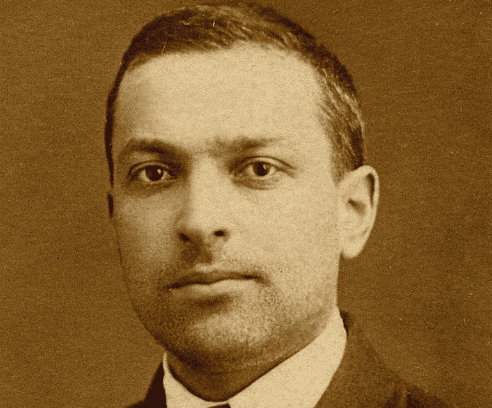Lev Vygotsky - Theory of Cognitive Development

Lev Vygotsky focused on the important contributions that society makes to individual development in his sociocultural theory of cognitive development. Thus, this theory emphasizes the interaction between how people develop and their culture. Furthermore, Vygotsky’s sociocultural theory of cognitive development also suggests that human learning is, to a large extent, a social process.
Vygotsky’s sociocultural theory of cognitive development didn’t only focus on how adults and peers influence individual learning. Also, it focuses on how cultural beliefs and attitudes impact the way instruction and learning take place.
Thus, note that Vygotsky’s sociocultural theory is one of the foundations of constructivism. Insofar, as it states that children, far from being mere passive recipients, build their own knowledge and their own schema from the information they receive.
The keys to the sociocultural theory of cognitive development of Lev Vygotsky
Led Vygotsky argued that the community plays a central role in the process of “making sense”. Therefore, this is why his sociocultural theory of cognitive development emphasizes the fundamental role of social interaction in the development of cognition.
Thus, according to Vygotsky, children still have a long period of brain development in front of them. Furthermore, each culture would provide what he called intellectual adaptation tools. This is because these tools allow children to use their basic mental skills in ways that are sensitive to the culture in which they grow up.
Vygotsky argued that learning is a necessary and universal aspect of the culturally organized development process. Specifically, of the human psychological function. In other words, social learning tends to precede development.

Like Piaget, Led Vygotsky claimed that babies have innate basic skills for intellectual development. According to him, the elemental mental functions are attention, sensation, perception, and memory. It’s through interaction within the sociocultural environment that these functions develop in more sophisticated and effective mental processes and strategies. These are also known as higher mental functions.
In this sense, Vygotsky considers that cognitive functions, even those carried out on their own, are affected by the beliefs, values, and tools of intellectual adaptation of the culture in which a person develops. Therefore, they’re socioculturally determined. As you can see, the tools of intellectual adaptation vary from culture to culture.
Vygotsky believed that each culture displays unique differences and that cultures vary dramatically. This is why Vygotsky’s sociocultural theory suggests that both the course and content of intellectual development aren’t as universal as Piaget believed.
The zone of proximal development
One of the most important concepts in Vygotsky’s sociocultural theory of cognitive development is the zone of proximal development. According to Vygotsky, the zone of proximal development is the distance between the actual level of development determined by independent problem solving and the level of potential development determined through problem-solving under the guidance of an adult or in collaboration with more capable peers.
Essentially, the zone of proximal development includes all the knowledge and skills that a person can’t yet understand or develop on their own but can learn with guidance. As children improve their skills and knowledge, they progressively extend their zone of proximal development.
Vygotsky considers that the zone of proximal development is the area where help in the learning process from someone with more experience can be more valuable. In other words, it’s the place where a student can benefit the most, in terms of learning, from learning from an expert.

Final notes
Lev Vygotsky’s theory also highlighted the importance of play in learning. Parents and teachers can use this context to discover where the child’s zone of proximal development is located and lead them to it. This is the area where there are tasks that constitute a real challenge for the apprentice; a set of challenges that, given their level of development, can be overcome with a little support.
Vygotsky also saw peer interaction as an effective way to develop skills and strategies. These are stimuli that usually have a similar zone of proximal development. That is why he suggested using cooperative learning exercises. Some in which the least competent children can develop with the help of more skilled peers.
Lev Vygotsky focused on the important contributions that society makes to individual development in his sociocultural theory of cognitive development. Thus, this theory emphasizes the interaction between how people develop and their culture. Furthermore, Vygotsky’s sociocultural theory of cognitive development also suggests that human learning is, to a large extent, a social process.
Vygotsky’s sociocultural theory of cognitive development didn’t only focus on how adults and peers influence individual learning. Also, it focuses on how cultural beliefs and attitudes impact the way instruction and learning take place.
Thus, note that Vygotsky’s sociocultural theory is one of the foundations of constructivism. Insofar, as it states that children, far from being mere passive recipients, build their own knowledge and their own schema from the information they receive.
The keys to the sociocultural theory of cognitive development of Lev Vygotsky
Led Vygotsky argued that the community plays a central role in the process of “making sense”. Therefore, this is why his sociocultural theory of cognitive development emphasizes the fundamental role of social interaction in the development of cognition.
Thus, according to Vygotsky, children still have a long period of brain development in front of them. Furthermore, each culture would provide what he called intellectual adaptation tools. This is because these tools allow children to use their basic mental skills in ways that are sensitive to the culture in which they grow up.
Vygotsky argued that learning is a necessary and universal aspect of the culturally organized development process. Specifically, of the human psychological function. In other words, social learning tends to precede development.

Like Piaget, Led Vygotsky claimed that babies have innate basic skills for intellectual development. According to him, the elemental mental functions are attention, sensation, perception, and memory. It’s through interaction within the sociocultural environment that these functions develop in more sophisticated and effective mental processes and strategies. These are also known as higher mental functions.
In this sense, Vygotsky considers that cognitive functions, even those carried out on their own, are affected by the beliefs, values, and tools of intellectual adaptation of the culture in which a person develops. Therefore, they’re socioculturally determined. As you can see, the tools of intellectual adaptation vary from culture to culture.
Vygotsky believed that each culture displays unique differences and that cultures vary dramatically. This is why Vygotsky’s sociocultural theory suggests that both the course and content of intellectual development aren’t as universal as Piaget believed.
The zone of proximal development
One of the most important concepts in Vygotsky’s sociocultural theory of cognitive development is the zone of proximal development. According to Vygotsky, the zone of proximal development is the distance between the actual level of development determined by independent problem solving and the level of potential development determined through problem-solving under the guidance of an adult or in collaboration with more capable peers.
Essentially, the zone of proximal development includes all the knowledge and skills that a person can’t yet understand or develop on their own but can learn with guidance. As children improve their skills and knowledge, they progressively extend their zone of proximal development.
Vygotsky considers that the zone of proximal development is the area where help in the learning process from someone with more experience can be more valuable. In other words, it’s the place where a student can benefit the most, in terms of learning, from learning from an expert.

Final notes
Lev Vygotsky’s theory also highlighted the importance of play in learning. Parents and teachers can use this context to discover where the child’s zone of proximal development is located and lead them to it. This is the area where there are tasks that constitute a real challenge for the apprentice; a set of challenges that, given their level of development, can be overcome with a little support.
Vygotsky also saw peer interaction as an effective way to develop skills and strategies. These are stimuli that usually have a similar zone of proximal development. That is why he suggested using cooperative learning exercises. Some in which the least competent children can develop with the help of more skilled peers.
All cited sources were thoroughly reviewed by our team to ensure their quality, reliability, currency, and validity. The bibliography of this article was considered reliable and of academic or scientific accuracy.
- Vygotsky, L.S. (1962). Thought and Language. Cambridge, MA: MIT Press.
- Vygotsky, L.S. (1978). Mind in Society. Cambridge, MA: Harvard University Press.
- Wertsch, J.V. (1985). Cultural, Communication, and Cognition: Vygotskian Perspectives. Cambridge University Press.
This text is provided for informational purposes only and does not replace consultation with a professional. If in doubt, consult your specialist.







